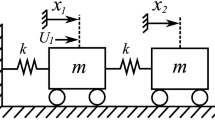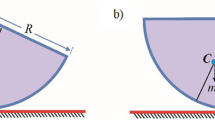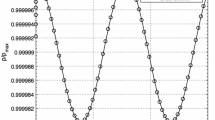Abstract
OPINIONS seem to vary concerning the origin of the reciprocal theorem. Thus, in his book “Mathematical Theory of Elasticity” (4th edit. 1927), A. E. H. Love attributed the theorem to E. Betti (Il nuovo Cimento, ser. 2, 1872), but stated that it is a special case of a more general theorem due to Lord Rayleigh (London Math. Soc. Proc., 4, 1873). In his book “Theory of Sound” (Vol. 1, 2nd edit. 1894), however, Rayleigh also acknowledged the reciprocal theorem as due to Betti. Neither Love nor Rayleigh connected Maxwell's name with the theorem although it is widely known as “Maxwell's Reciprocal Theorem”. In fact, Maxwell did include a statement of a form of the reciprocal theorem in his paper “On the Calculation of the Equilibrium and Stiffness of Frames” (Phil. Mag., 27, 1864). It is, no doubt, due to this work, which appeared before the relevant work of Betti and Rayleigh, that Maxwell is nowadays given credit for the theorem, and it is interesting to note the neglect of Maxwell's paper by Rayleigh and Love.
This is a preview of subscription content, access via your institution
Access options
Subscribe to this journal
Receive 51 print issues and online access
$199.00 per year
only $3.90 per issue
Buy this article
- Purchase on Springer Link
- Instant access to full article PDF
Prices may be subject to local taxes which are calculated during checkout
Similar content being viewed by others
Author information
Authors and Affiliations
Rights and permissions
About this article
Cite this article
CHARLTON, T. A Historical Note on the Reciprocal Theorem and Theory of Statically Indeterminate Frameworks. Nature 187, 231–232 (1960). https://doi.org/10.1038/187231a0
Issue Date:
DOI: https://doi.org/10.1038/187231a0
This article is cited by
-
Nonreciprocal elasticity and the realization of static and dynamic nonreciprocity
Scientific Reports (2020)
-
Static non-reciprocity in mechanical metamaterials
Nature (2017)
Comments
By submitting a comment you agree to abide by our Terms and Community Guidelines. If you find something abusive or that does not comply with our terms or guidelines please flag it as inappropriate.



